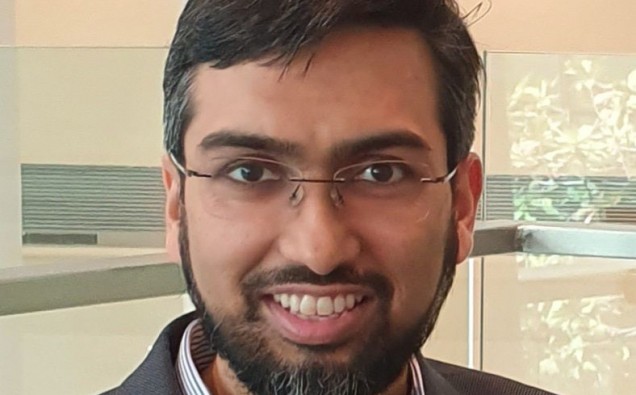The rollout of the COVID-19 vaccines is being celebrated because vaccination saves lives and offers us a way out of the coronavirus crisis. Millions of people have already had their first dose of a COVID-19 vaccine, but there are some who are worried about the safety of a jab that has been developed so quickly.
Here, ten doctors, who are working on the frontline of the coronavirus pandemic, respond to some of the most popular questions about the COVID-19 vaccine.
The vaccine was developed too quickly, how can I be sure it’s safe?
The vaccines that are authorised have been through three stages of clinical trials and have been tested on tens of thousands of people around the world.
The trial phases were organised to overlap, speeding up the overall time of vaccine production, but without cutting any corners on trialling the vaccine and ensuring it meets strict standards of safety and effectiveness.
While the vaccines have been created quickly, they have been subjected to the same rigorous safety tests and processes as other medicines. The Medicines and Healthcare products Regulatory Agency (MHRA), the independent regulatory body which approves all the medicines we use in the UK, has assessed the safety of each vaccine and continues to monitor them. Millions of people have received a COVID-19 vaccine.
As a GP, I’ve witnessed the devastating impact that COVID-19 has had on my community. It is important to remember that any side effects from the vaccine are minimal compared to the much higher risks of ending up in hospital, in intensive care or even dying from COVID.
Dr Koyes Ahmed, NHS GP, Urgent Care Doctor and Vice Chair of the Bristol Muslim Strategic Leadership Group
Will the vaccine modify my DNA?
No. The claim that the COVID-19 vaccines may modify your DNA is false. The vaccines do not interfere with your DNA. It seems this myth has spread widely because of the use of mRNA vaccines. Both the Pfizer/BioNtech and the Moderna vaccines are mRNA vaccines. This has nothing to do with DNA and doesn’t modify your genes but rather produces the spike protein that triggers a reaction in your immune system that causes your body to produce antibodies which can later fight the virus.
Dr Raghib Ali, Consultant in Acute Medicine at the Oxford University Hospitals NHS trust
Is the vaccine Halal?
The three COVID-19 vaccines currently approved in the UK contain no pork products and many Muslim leaders and organisations are encouraging their communities to take the vaccine. The British Islamic Medical Association, Muslim Doctors Association, Muslim Council of Britain and the Mosques and Imams National Advisory Board are some of the many Muslim organisations that are encouraging people to get the vaccines.
The Oxford AstraZeneca vaccine contains some ethanol, but the amount is so small, similar to what you can expect in bread or banana, that many Muslim scholars have said it is permissible to take the vaccine. Mosques around the country are also being used as vaccination centres as part of Muslim leaders’ support of the vaccine rollout. If you want to find out more about the vaccine and its compatibility with your faith, you can talk to the faith leader at your local mosque.
Dr Hina Shahid, GP and Chair of the Muslim Doctors Association
Can I take the COVID-19 vaccine whilst fasting during Ramadan?
Taking the COVID-19 vaccine does not invalidate the fast, according to Islamic scholars. You don’t need to delay your COVID vaccinations on the account of Ramadan.
Dr Ebadur Chowdhury, GP
Does the vaccine contain aborted foetal cells?
There are no aborted foetal cells or tissues in any of the COVID-19 vaccines. In fact, there are no living organisms or human cells in any of the jabs. The production and testing of each vaccine has been monitored to ensure they meet ethical standards. Muslim associations and Imams are all among those who have endorsed the UK’s vaccine rollout.
Dr Nighat Arif NHS GPwSI in Women’s health in Buckinghamshire
BBC Breakfast/ITV This Morning Contributor
Are the COVID vaccines free?
COVID-19 vaccines are only available free of charge from the NHS. You cannot get the jab privately. Criminals are using the pandemic to defraud people so it’s important to remember the NHS will never ask you to pay for the vaccine or provide your bank details to get the jab.
Dr Farzana Hussain, GP The Project Surgery, Newham.
After having two doses of the vaccine, can I return back to normal and start mixing with family and friends?
Even after you’ve had the first and second dose, at the moment, the advice is that you should still follow the current government restrictions. We know that the vaccines will help reduce deaths and they will help stop people getting really unwell and being hospitalised. However, it is essential that everyone continues to follow COVID-19 restrictions whether they have had the vaccine or not. It’s tough, but really important for now.
This means it is important to:
- continue to follow social distancing guidance
- wear a face covering and remember hands, face, space
- cut down on your interactions with other people as this is how Covid spreads.
Dr Chintal Patel, GP in Westminster, London.
Is the vaccine vegetarian and vegan?
The MHRA and manufacturers have confirmed that the COVID-19 Oxford AstraZeneca, Pfizer/BioNTech and Moderna COVID-19 vaccines do not contain any components of animal origin. They’re suitable for vegetarians and vegans and those who want to avoid certain foods for religious or cultural reasons. Many religious leaders and organisations are encouraging their communities to take the vaccine. Temples, cathedrals, gurdwaras and mosques have become vaccination centres, and volunteers from many faith organisations are helping in the vaccine effort.
Dr Annapoorna Sharma, MBBS FRCPCH Consultant Paediatrician with interest and experience in immunisation programme leading and teaching.
Does the vaccine affect fertility?
There have been some harmful myths circulating that claim the COVID-19 vaccines can make you infertile. There is no evidence to show that taking any of the COVID-19 vaccines cause infertility in women or men. The theory that immunity to the spike protein could lead to fertility problems is not supported by any evidence. Most people who contract COVID-19 will develop antibody to the spike and there is no evidence of fertility problems after Covid-19 disease.
Dr Anuja Shah, GP in Luton, GP Trainer, Special interest in women’s health and diabetes.
Will the vaccine give you covid?
You can’t catch COVID-19 from any of the approved vaccines. They work by stimulating your immune system to produce antibodies so that if you are exposed to the virus, your body can fight it. You could test positive after having your jab because you caught the coronavirus before receiving the vaccine. And because no vaccine offers 100% protection, it is possible to contract COVID-19 after being vaccinated – but you won’t get the virus from the jab. It’s still really important to maintain social distancing and wear a mask, even after being vaccinated.
Dr Jahangir (Jingy) Alom, NHS Doctor, Campaigner, Guest Speaker
Will the vaccine work with the new variants?
Both the Pfizer/BioNTech and Oxford/AstraZeneca vaccines are safe and effective against the COVID-19 variants currently dominant in the UK. In terms of other variants, even if a vaccine demonstrates reduced effectiveness against other variants in preventing infection, there may still be protection against severe disease that can lead to hospitalisation and death. The continued rollout of the vaccine is therefore essential to save lives and to protect our NHS.
Dr Harpreet Sood, GP in London and Board member of Health Education England
I am young and fit, so why do I need it? I wouldn’t be expected to have the flu jab, why is this any different?
Although it is true that most people who die from COVID are older, half of our patients in intensive care are aged less than 60, and I have personally seen many patients in their 20s, 30s and 40s. Even a milder infection with COVID can also cause ‘Long COVID’ when people of all ages have symptoms like tiredness, or breathlessness for weeks and even months.
Finally, and this is particularly important in South Asians who are more likely to live with and be in contact with older relatives, you can pass on the infection to your parents and grandparents who are at much higher risk. So by taking the vaccine you protect yourself and your elderly relatives – and society as a whole.
Dr Raghib Ali, Consultant in Acute Medicine at the Oxford University Hospitals NHS trust


















